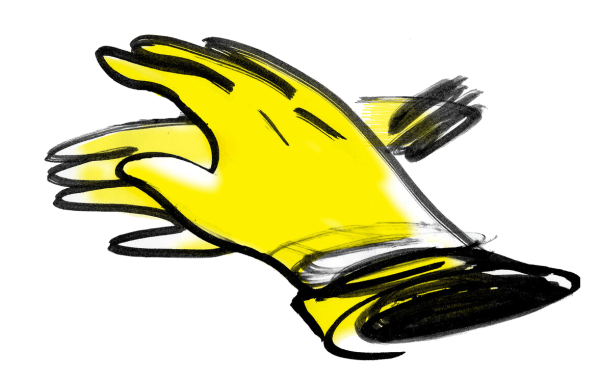by Brett F. Braley-Palko
PITTSBURGH – In tallying up the books I have read this year, I noticed a trend. Of the 38, more than a few have included a hunting weekend as the backdrop of the plot’s circumstance. From the Duchess of Devonshire’s memoirs including a section on Harold Macmillan learning to shoot to the mishaps surrounding a hunting party in Mitford’s Highland Fling, I seem to have a penchant for the moorish stage on which these aristocratic endeavors are set.

This might not be a surprise for anyone that knows me, considering I have a flair for pomp and an interest in the social gratin of yesteryear. I like ceremony. I like tweeds. I like dogs and country houses, too. And while I am a vegetarian, that doesn’t impede my daydreaming. The Duke of Beaufort is a distant cousin of mine. I still await an invite to Badminton and the promise of a large supper after a day of hacking it in the fields.
(I fear I may be waiting for quite some time.)

To understand the hunting weekend, one must understand the English aristocrat. During the Edwardian era and into the inter-War years of England, the English aristocracy began to have an identity crisis. The advent of industrialized labour, a contracting Empire, and a democratization of wealth among the hoi polloi caused a social confusion for many Earls, Barons, and Dukes. With a masculinity so tied into the advantage of inheritance, and that inheritance not meaning what it used to, a reclamation of sorts took place to redefine the pride of being a nobleman. This manifested most noticeably within the pastimes of the peerage.

When hunting no longer had a survivalist undertone, it became sport. Again and again throughout history, we see the upper-class reclaims nature for its amusement. Think of swimming pools, automobile racing, and the English garden. All are a construction, a taming of the wild and calling it recreation. The English hunt is no different.

As Adrian Tinniswood’s book, The Long Weekend, details, a shoot can be for various lengths of time, but usually it would be a Thursday to Monday affair (though, in the Mitfordian example above, the shoot at Dalloch Castle was for a month!). Guests would arrive by train or car and settle in for the first evening of camaraderie and parlour games. This was an evening one could size up the competition for the next morning or booze among old friends.
A quick nightcap. A hot water bottle placed below the rug. And hopefully a full night’s sleep.
In the morning, one would dress in the appropriate costume for the day ahead. Naturally, a gentleman’s game on the estate would require a level of prestige to the dress code. More often than not, this would mean kitting oneself out in the following, from head to toe: a flat cap, a buttoned shirt, a necktie, a waistcoat, a tweed jacket, a pair of breeks, and Wellies. Depending on the weather, a Barbour may be required. Pack it just in case – the mornings are cold and wet.
A rushed bite of eggs. A thermos of coffee. Barking dogs and revving Range Rovers awaited one.
Shall I bore you with the details of hunting? If you’re reading this in the morning, it may spoil your own breakfast. I’d much prefer to skip the boring, gory bits – wouldn’t you?
After the hunt, as the grouse are bagged and the guns cleaned, the guests retired for supper, warming their hands around a fire and their bellies with a beer. Here, those that preferred not to join in the matutinal merriment reunited with the group to recap the day’s wins (and losses).. The next day, the events would be repeated before the weekenders had to return to their normal lives by Monday evening.

The English peerage, with their vast estates and infinite free time, created a system of rituals to reclaim a waning sense of masculinity. They built upon what was already familiar to their social strata – rules and dress codes and social order – to create a sport that was just as much about Man conquering Nature as it was about Man conquering His Own Anxieties. It is this latent desire to feel needed among their own class, this adaptation to a crumbling empire, this desperate holding onto of bygone significance that I am most drawn to in the texts I’m reading.
Even so, I have a set of tweeds on my Christmas list this year – just in case I’ll need them, whatever my prey may be.




